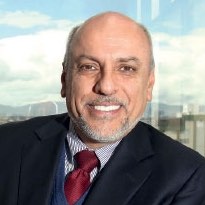 Director General, National Council of Science and Technology (CONACYT), Mexico.
Director General, National Council of Science and Technology (CONACYT), Mexico.
Enrique Cabrero Mendoza got his PhD in Management Sciences at L’École des Hautes Études Commerciales in France (2001), a Master in Pedagogical Improvement at the Centre d´Enseignement Supérieur des Affairs, and a MA in Public Administration at the Center for Economic Research and Teaching (CIDE), and a BA in Administration at the Autonomous University of San Luis Potosí, his native city. He is the author and editor of twenty books and over a hundred articles and book chapters on issues of decentralization, public policies, local governments, and policies in Mexico and various countries, the founder of the Public Management Journal, edited at CIDE, and of the Government and Local Management Award granted annually as well by CIDE since 2000. He has received several awards and distinctions, such as being named Knight in the Order of the Academic Palms, distinction of the National Education Ministry of France; he is member of the Mexican Academy of Sciences, member of the Directive Board of the Woodrow Wilson Center, among others, and has been consultant to various international institutions such as the Organization of Economic Cooperation and Development, World Bank, and the United Nations Development Program.
Read more: Dr Enrique Cabrero Mendoza

Deputy Director, National Council of Science and Technology (CONACYT), Mexico.
Dr Julia Tagüeña holds the post of Deputy General Director of Scientific Development of the Mexican National Council of Science and Technology (CONACYT). She was invited to take this post by the General Director of the agency, Dr. Enrique Cabrero. For over 25 years, she has been a research professor at the Energy Research Center of the Universidad Nacional Autónoma de México (UNAM), of which she also served as Director. She studied physics at UNAM and obtained a PhD at Oxford University. Her main fields of research are solid-state physics and renewable energies, and she has also worked extensively on science communication. She is a member of the Mexico's National Research System, with the highest rank, and of different societies such the Mexican Academy of Sciences and the Institute of Physics of the United Kingdom.
Read more: Dr Julia Taguena
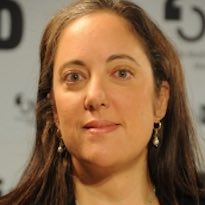 Executive Vice-President, Inter-American Development Bank (IDB).
Executive Vice-President, Inter-American Development Bank (IDB).
Julie T. Katzman, a U.S. citizen, is the Executive Vice-President and Chief Operating Officer of the Inter-American Development Bank (the “IDB”); the largest provider of development finance to the public and private sectors in Latin America and Caribbean. As a long-time investment banker focused primarily on private equity, Ms. Katzman developed well recognized expertise in financial structures and products across numerous industries. Ms. Katzman joined the IDB Group in 2009 as General Manager of the Multilateral Investment Fund (the “MIF”). Eighteen months later, she was appointed Executive Vice President of the IDB. Ms. Katzman is currently responsible for managing the overall operations of the IDB. She is pioneering an institutional transformation to further the IDB’s emphasis on achieving, measuring and reporting tangible results, and improving access and availability of these results through innovative management and visualization tools such as MapAmericas.
Read more: Julie T. Katzman
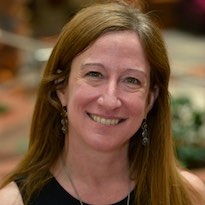 Head, Office of International Science and Engineering (OISE), National Science Foundation (NSF), USA.
Head, Office of International Science and Engineering (OISE), National Science Foundation (NSF), USA.
Rebecca Keiser has been Head of the U.S. National Science Foundation’s Office of International Science and Engineering (OISE) since April of 2015. Prior to her current position, she held several positions with NASA, including associate deputy administrator for strategy and policy, associate deputy administrator for policy integration, executive officer to the deputy administrator, and chief of staff for the Exploration Systems Mission Directorate. Keiser also served as assistant to the director for international relations at the White House Office of Science and Technology Policy, where she provided policy guidance to the president's science advisor. Keiser's experience covers science and technology policy, agreements and other cooperative efforts. She is a board member of Women in Aerospace and a member of the American Academy for the Advancement of Science.
Read more: Dr Rebecca Keiser
 Chief Scientist, The Fonds de Recherche du Québec (FRQ), Canada.
Chief Scientist, The Fonds de Recherche du Québec (FRQ), Canada.
Rémi Quirion is the Chief Scientist of Québec. His position at the interface of the three research Funds enables him to build connections and implement changes that will boost knowledge production and innovation within Québec’s research system and, ultimately, extend its influence on national and international levels. Until his appointment as chief scientist, Rémi Quirion was the vice-dean for science and strategic initiatives in the faculty of medicine at McGill University and senior university advisor on health sciences research. He was the scientific director of the Douglas Mental Health University Institute Research Centre, a full professor in the department of psychiatry at McGill University and the executive director of the International Collaborative Research Strategy for Alzheimer’s Disease of the Canadian Institutes of Health Research. Professor Quirion was the first scientific director of the Institute of Neurosciences, Mental Health and Addiction (INMHA), one of Canada’s 13 health research institutes.
Read more: Prof Rémi Quirion
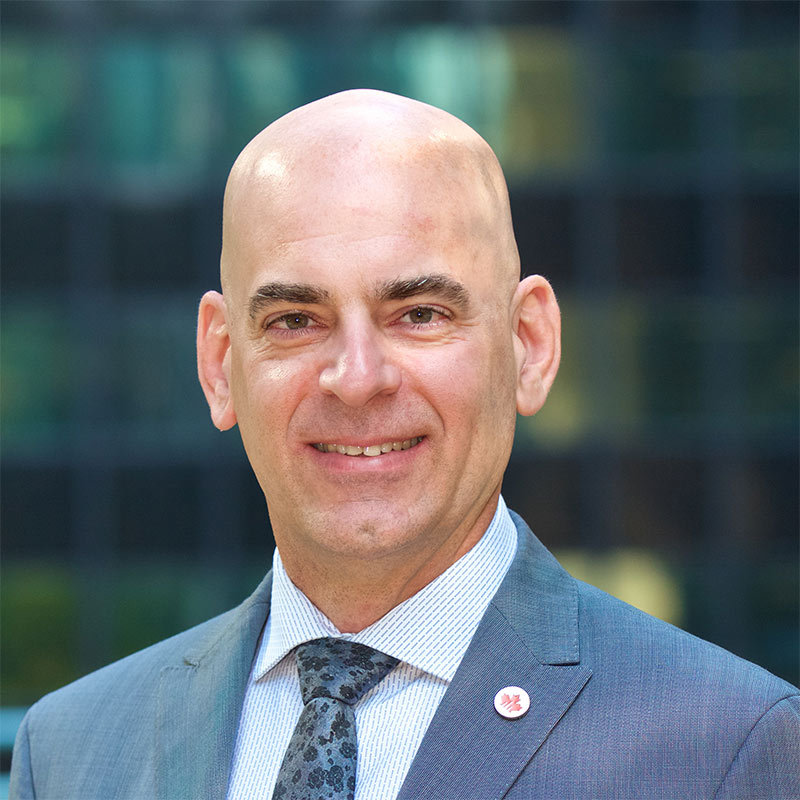
Director, Scholarships, Fellowships and Chairs for Women in Science and Engineering, Natural Sciences and Engineering Research Council (NSERC), Canada.
Serge Villemure graduated in 1989 with a B.Sc. in Kinesiology and obtained his Masters in 1991 in Administration from the University of Ottawa, Ontario, Canada. Serge joined NSERC in 1991 where he worked as a Program Administrator in different disciplines within the Research Grants Division. In 1997, he became Team Leader for Physical and Mathematical Sciences. He spent one year, from June 2000 to June 2001, at the Canada Research Chairs Secretariat as a Senior Administrator, where he contributed to starting up the program, and then returned to his position within the Physical and Mathematical Sciences at NSERC. In 2004, he led the Physical and Mathematical Sciences and Engineering teams as Director. Since 2010, he has been Director of the Scholarships and Fellowships Division. More recently, he also became the Director of the Chairs for Women in Science and Engineering (CWSE) Program.
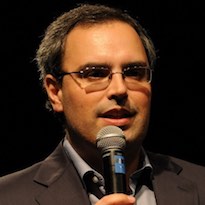 Director, Centre for Economic Research (CINVE-Uruguay), Uruguay.
Director, Centre for Economic Research (CINVE-Uruguay), Uruguay.
Diego Aboal is the Director of the Centre for Economic Research (CINVE-Uruguay). He holds a PhD in Economics (University of Essex, UK), a Master of Science in Economics (London School of Economics, UK) and a Master in Economics and BA in Economics (Universidad de la República, Uruguay). He is Professor at Universidad ORT Uruguay and Universidad de la República. During 2007-2008 he was a temporary Lecturer of Econometrics in the Master of Finance at the University of Cambridge (UK). His papers have been published in the following journals: Economics of Innovation and New Technology, World Development, Journal of Development Studies, Small Business Economics, European Journal on Criminal Policy and Research, CEPAL Review. His main research areas are: Economics of Science, Technology and Innovation, Political Economy and Economics of Crime and Violence
Read more: Prof Diego Aboal
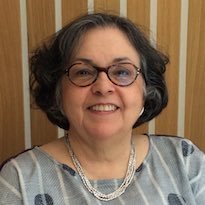
Alice Abreu, the Acting Director of GenderInSITE, is Emeritus Professor of the Federal University of Rio de Janeiro, Brazil. She was vice-president of the National Research Council for Scientific and Technological Development of Brazil, director of the Office of Education, Science and Technology of the Organization of American States, and director of the regional office for Latin America and the Caribbean of the International Council for Science. A sociologist by training, she has worked on sociology of work and more recently on gender and science. Gender in science, innovation, technology and engineering (SITE) is an international initiative to promote the role of women in science, innovation, technology and engineering, and to demonstrate how applying a gender lens to SITE can provide deeper insights, more effective programmes and more sustainable outcomes in the context of development.
Read more: Prof Alice Abreu
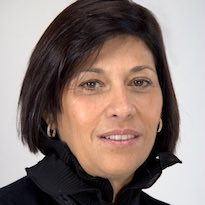 Global Senior Gender Adviser, International Union for Conservation of Nature (IUCN), USA.
Global Senior Gender Adviser, International Union for Conservation of Nature (IUCN), USA.
Lorena Aguilar is the Global Senior Gender Adviser and head of the Global Gender Office, a position she created and has held since 2002, following more than a decade with IUCN. She has more than 30 years of experience in projects and initiatives at all levels involving public policy development, building local institutions, and the incorporation of social and gender issues into sustainable development efforts. Lorena has vast experience providing assistance to international organizations, governments, and universities on gender policy, gender equality, and women’s empowerment, as well as on water, forests, environmental health and disaster risk reduction. Her expertise serves hundreds of partner organizations and has transformed the institutional identify of IUCN itself.
Read more: Lorena Aguilar
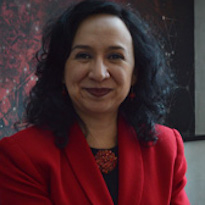 Director of Science Planning, National Council of Science and Technology (CONACYT), Mexico.
Director of Science Planning, National Council of Science and Technology (CONACYT), Mexico.
MA Lorena Archundia is Director of Science Planning in the Direction of Scientific Development of the Mexican National Council of Science and Technology since 2013. She represents CONACYT in International Negotiations related to Scientific Development postdocs, and also responsible for the coordination of other programs related to scientific and technological development, training of high level human resources, sabbaticals and repatriations, as well as the integration and management of the budget of the Direction for Scientific Development. She is the author of several publications, including her participation in the co-authoring of the book: “The Institutional Design of the Science and Technology Policy in Mexico”, coordinated by Dr. Enrique Cabrero, Director General of CONACYT. She earned a MA in Public Policy from the Center for Economic Research and Teaching (CIDE), and a BA in in Politics and Public Administration from Universidad Iberoamericana (IBERO).
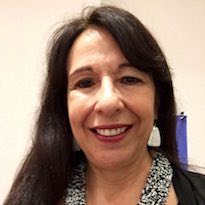 Research Professor, Universidad de Quintana Roo (México); Consultant for Gender and REDD+, International Union for Conservation of Nature.
Research Professor, Universidad de Quintana Roo (México); Consultant for Gender and REDD+, International Union for Conservation of Nature.
Sociologist with Master’s Degree in Rural Development from the Metropolitan Autonomous University (UAM, Mexico) and Ph.D in Social and Political Sciences from the National Autonomous University of Mexico (UNAM). She has conducted research-action projects in rural and coastal communities in collaboration with universities in Mexico, USA and Latin America. Wide experience in gender and forest as a researcher and consultant with national and international institutions. She was the lead consultant for IUCN in developing the Gender and Sustainable Development Assessment in the Yucatan Peninsula. She is member of the Academic Network on Gender, Environment and Society of the National Council of Science and Technology (CONACYT).
Prof Marcia C. Barbosa is the director of the Instituto de Física of the Universidade Federal do Rio Grande do Sul, Brazil. She is member of the Brazilian Academy of Science, of the American Physical Society Council and of the Brazilian Physical Society Council. She was the vice-president of the International Union of Pure and Applied Physics where she also coordinated the Working Group on Women in Physics. For her work on gender issues she was granted the Nicholson Medal from the American Physical Society and for her work on the physics of water she was awarded the Loreal-Unesco Prize on Women on Physical Sciences for Latin America.
Read more: Prof Marcia C. Barbosa
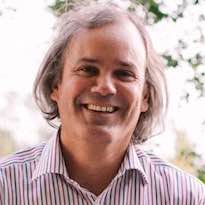 Division Chief, Competitiveness and Innovation Division, Inter-American Development Bank (IDB).
Division Chief, Competitiveness and Innovation Division, Inter-American Development Bank (IDB).
José Miguel Benavente is the Division Chief of the Competitiveness and Innovation Division at the Inter-American Development Bank. Before joining IDB in 2014, he was the Director of the Productivity Center at Universidad Adolfo Ibañez (Chile) and a professor at Universidad de Chile for over 15 years. In these institutions he taught and researched on a variety of topics such as economic development, innovation, productivity, R&D, SMEs and startups, and applied microeconometrics, among others. He has authored around one hundred national and international journal articles and books on these topics. He has also been a columnist for magazines and newspapers, journal editor, consultant for major international organizations, government advisor and vice president of the National Innovation Council of Chile. José Miguel holds a degree inIndustrial Engineering from Pontificia Universidad Católica de Valparaiso, completed his Masters in Economics at Universidad de Chile, and both a Masters and PhD in Economics at Oxford University.
Read more: Dr José Miguel Benavente
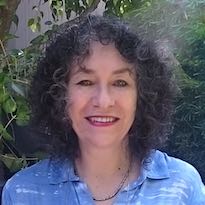 Coordinator, Mexican Network of Science, Technology and Gender (MEXCITEG), Mexico.
Coordinator, Mexican Network of Science, Technology and Gender (MEXCITEG), Mexico.
Bachelor’s degree in Psychology, Anáhuac University (México). Master’s degree in Sciences, Center for Research and Advanced Studies (CINVESTAV) of the National Polytechnic Institute (IPN) (México). Specializing in Gender Studies, Interdisciplinary Program of Women Studies (PIEM), El Colegio de México. PhD in Philosophy, Faculty of Philosophy, National Autonomous University of Mexico (UNAM). Research professor and Director of Center of Interdisciplinary Research in Sciences and Humanities of the National Autonomous University of Mexico (UNAM México). Member of the Mexico’s National Research System and of the Mexican Academy of Sciences. Founding member of the Gender, Science and Technology Network in Iberoamérica (RIGCYT, CYTED), coordinator of the Mexico Group. Coordinator of the Mexican Network of Science, Technology and Gender (MEXCITEG).
Read more: Dr Norma Blazquez Graf
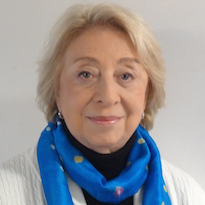
UNESCO Regional Chair on Women, Science and Technology; GenderInSITE Regional Focal Point for Latin America and the Caribbean; Director of the Gender, Society and Policies Area of FLACSO Argentina (Latin American School of Social Sciences, Argentina.
Dr Gloria Bonder is the Director of the Department of Gender, Society and Policies of the Latin American Postgraduate Institute of Social Sciences (FLACSO Argentina). She coordinates two regional programmes including the UNESCO Regional Chair on Women, Science and Technologyin Latin America and the e-learning master’s programme on Gender, Society and Public Policies. Bonder is the coordinator of the Global Network of UNESCO Chairs on Gender. Since 2014, she has coordinated the region’s activities in the global GenderInSITE programme, through her role as the UNESCO Regional Chair. The programme aims to influence policies and policy makers in science, technology, innovation and engineering, to integrate gender equality principles and goals.
Read more: Prof Gloria Bonder
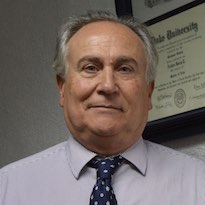 Director of International Cooperation, National Council of Science and Technology (CONACYT), Mexico.
Director of International Cooperation, National Council of Science and Technology (CONACYT), Mexico.
Since February 2013 Dr Borja is the Director of International Cooperation of the National Council of Science & Technology of Mexico (CONACYT). Previously, he was the Executive Director of the U.S.-Mexico Commission for Educational and Cultural Exchange, which administers the Fulbright Program in Mexico. He developed his academic career at the Center for Research and Teaching in Economics (CIDE), where he was the Director of The Division of International Studies and the Academic and Administrative Dean and developed a program of international student mobility for CIDE. He has been a visiting professor at the Center for U.S.-Mexico Studies University of California at San Diego, Duke University, the University of Montreal, The University of Alberta and the University of Linköping, Sweden. He is a specialist in regional integration issues with a focus on North America. His research and teaching areas include International comparative political economy and International Relations Theory.
Read more: Dr Jesús Arturo Borja Tamayo
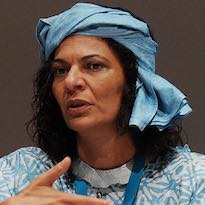 Director for Science Policy and Sustainable Development, UNESCO.
Director for Science Policy and Sustainable Development, UNESCO.
Born in Cabo Delgado, Mozambique, Dr Brito has more than thirty years working experience in the field of Science Policy, STI development plans, monitoring and assessment of STI policies and instruments, Forestry, traditional energy (Biomass and Charcoal), Higher Education management, Technical-Vocational Education, ICT for Development, as a University professor, researcher, consultant and senior management both at national, regional and international institutions, combining academic with hands-on experience in promoting sustainable development. In November 2009 she was recruited as the Director for Science Policy and Sustainable Development of UNESCO, a post she is occupying until today. Dr Lidia Brito has worked extensively in the advancement of STI for sustainable development, and in building the interface between science-policy and society. She co-chaired the biggest scientific event for the preparation of Rio+20, Planet under Pressure Conference (London, 2012); she organized several events during Rio+20 as part of UNESCO activities during the Summit.
Read more: Dr Lidia Brito
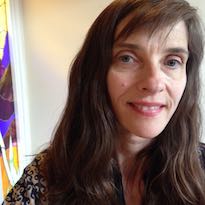 Assistant Research Professor of Environmental Policy, Udall Center for Studies in Public Policy and School of Geography and Development, University of Arizona, Tucson, Arizona, USA.
Assistant Research Professor of Environmental Policy, Udall Center for Studies in Public Policy and School of Geography and Development, University of Arizona, Tucson, Arizona, USA.
Dr Buechler is an ambassador for Oxfam’s ‘Sister on the Planet’ gender, development and climate change initiative, and a former gender researcher for the International Water Management Institute. Dr Buechler’s research focuses on gender, water, climate change, adaptation, urban, peri-urban and rural agricultural production and processing, food security, migration, livelihoods, urban and rural development, innovation and urban heat islands in semi-arid regions of Latin America, Asia and North America.

Vice-Rector, Leiden University, Netherlands, and Chair of League of European Research Universities (LERU) Gender Equality Group.
Simone Buitendijk MD, MPH, PhD is Vice-rector Magnificus in charge of teaching and learning and of diversity and member of the Board of the University of Leiden. She is Professor and Chair of Women’s and Family Health at the Leiden University Medical Center. Simone Buitendijk studied Medicine in Utrecht, received a Master’s degree in Public Health at the Yale School of Medicine in the US, and earned her PhD degree in Leiden.She is a member of the LERU (League of European Research Universities) Gender Steering Group. She co-authored the 2013 LERU position paper ‘'Women, research and universities: excellence without gender bias" and of the 2015 LERU advice paper of Gendered Research and Innovation (in press).
Read more: Prof Simone Buitendijk
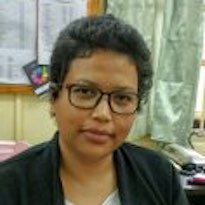 Founder and Executive Director, Feminist Approach to Technology (FAT), India.
Founder and Executive Director, Feminist Approach to Technology (FAT), India.
Gayatri started the not-for-profit organization Feminist Approach to Technology (FAT) in 2007. FAT is the first and only organization in India that works solely to promote women’s participation in all levels of science and technology, and questions the impact of the gender gap within technology on the society. A feminist approach to technology, as defined by FAT, is an outlook that questions the existing structures of technology and intends to have women become equal partners in developing, using, managing and controlling technology. It critiques the design, use and impact of technology. FAT believes that equal participation of women in technology and decision-making around it would help ensure that there is better balanced development and growth, promote gender equality and women's rights while attempting to see to it that widely used technologies do not affect women adversely.
Read more: Gayatri Buragohain
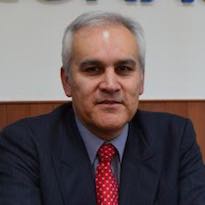 Deputy Director for Planning and Evaluation, National Council of Science and Technology (CONACYT), Mexico.
Deputy Director for Planning and Evaluation, National Council of Science and Technology (CONACYT), Mexico.
He got a PhD in Economics at The University of Chicago (USA, 1998), a M. A. in Economics at The University of Chicago (USA, 1998), a M.A in Economics at CIDE, A.C. (Mexico, 1993) and a B.S. in Applied Mathematics at the UJED (Mexico, 1993). He is a Researcher at the Economics Department at CIDE, A.C. since October 1998 (on leave since June 2014), Director of the Economics Department at CIDE from 2005 to 2009. He has the Level II at the National Researchers System from the National Council for Science and Technology.
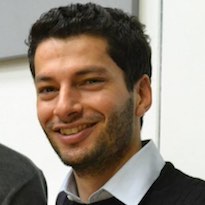 Training coordinator, SciDev.Net
Training coordinator, SciDev.Net
Juan (juan.casasbuenas@scidev.net) coordinates SciDev.Net’s strategic approach to capacity building for science communication and science journalism. Before joining the organisation, Juan worked for several years as a science teacher with an emphasis in supporting teachers through their training, but also developing a passion for communicating science; which led him to completing a master’s degree in Science Communication at Imperial College. Before joining SciDev.Net he worked at an educational charity; training and supporting researchers to deliver courses based on their research to pupils in schools. Juan has developed the organisation’s strategic training plan and a comprehensive training toolkit with the aim of delivering sustainable training programmes.
Read more: Juan Casasbuenas
Xóchitl Castañeda has been the Director of Health Initiative of the Americas (HIA), at the University of California Berkeley, School of Public Health, since 2001. A medical anthropologist by training, Ms. Castañeda was educated in Guatemala and Mexico. She did a post-doctoral fellowship in reproductive health at the University of California, San Francisco (UCSF). She also received post-doctoral training in social science and medicine at Harvard University and at Amsterdam University. For over seven years, she was a Professor of Public Health Sciences and a P.I. Researcher at Mexico’s National Institute of Public Health, where she directed the Department of Reproductive Health. In 1999, she received the National Research Award on Social Science and Medicine. In 2010, the California Latino Legislative Caucus awarded her with the National Sprit Award for her leadership in initiatives to improve the quality of life of Latino immigrants in the U.S.
Read more: Dr Xóchitl Castañeda
 Gender and Sustainable Development Special Adviser, Global Gender Office, International Union for Conservation of Nature (IUCN), USA.
Gender and Sustainable Development Special Adviser, Global Gender Office, International Union for Conservation of Nature (IUCN), USA.
Itzá has almost 20 years of experience in projects and initiatives involving public policy development, building local institutions, and the incorporation of gender issues into development. She has worked in various capacities for a number of international and national organizations in Mexico and Latin America as a researcher and consultant adviser, while also teaching and training on gender equality and development. From 2001 to 2004, Itza was the Director of Gender Equity at Mexico’s Secretariat of Environment and Natural Resources (SEMARNAT). From 2004 to 2011, she held the position of Senior Gender Adviser for the United Nations Development Programme (UNDP) in Mexico. Since 2012, she has been advising on environmental and gender policy for IUCN as the gender focal point for Mexico, and recently with particular involvement in the national REDD+ process in Mexico.
Read more: Itzá Castañeda
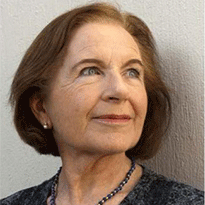
Professor of the Institute of Physics, and lecturer, Faculty of Sciences, Universidad Nacional Autónoma de México (UNAM), Mexico.
Ana María Cetto is research professor at the Institute of Physics, and lecturer at the Faculty of Sciences, Universidad Nacional Autónoma de México (UNAM). Her main field of research is theoretical physics, with emphasis on the foundations of quantum mechanics, where she has contributed substantially to the development of stochastic electrodynamics. From 2003 to 2010 she served as Deputy Director General of the International Atomic Energy Agency. Prof Cetto has held honorary positions in a number of international organisations, such as the Executive Boards of Interciencia Association, Third World Organisation for Women in Science (TWOWS, Co-founder) and International Council for Science (ICSU), the Board of Trustees of International Foundation for Science (IFS), the Governing Board of United Nations University (UNU), the Council of International Network of Engineers and Scientists (INES) and the Executive Committee of Pugwash Conferences. She was appointed Mexico's Woman of the Year in 2003.
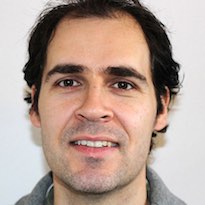 Associate Professor of Economics, Clark University, USA.
Associate Professor of Economics, Clark University, USA.
David Cuberes is an Associate Professor of Economics at Clark University. He is a consultant for the World Bank and the International Monetary Fund on topics related to economic growth and development as well as urban economics. He started his academic career as an Assistant Professor at Clemson University. He then spend some years at the University of Alicante (Spain) and the University of Sheffield (United Kingdom). He has also been a visiting professor at Warwick University and Royal Holloway (University of London). Dr Cuberes' research focuses on the link between institutions and economic growth and the determinants of city growth. His papers have been published in the Economic Journal, Journal of Urban Economics, and Journal of Human Capital, among others.
Read more: Assoc. Prof David Cuberes
 Director of Technology Commercialisation, National Council of Science and Technology (CONACYT), Mexico.
Director of Technology Commercialisation, National Council of Science and Technology (CONACYT), Mexico.
Teresa de León Zamora is the Director of Technology Commercialisation at CONACYT, the National Science and Technology Council in Mexico. Her main responsibilities are the interaction with different governmental ministries and agencies, as well as with the academic, scientific and private sectors in Mexico and internationally, to design public policy and funding programs to support innovation that will enhance a knowledge-base economy in Mexico. Teresa has a Masters degree (MSTC) in Science and Technology Commercialisation from the Advanced Materials CONACYT Research Center in Mexico (CIMAV), jointly with the IC2 from the University of Texas in Austin, and an MBA from the Universidad de las Américas Puebla.
Read more: Teresa de León Zamora
Inés Sánchez de Madariaga, Arch, PhD, MSc, is an internationally recognized expert on gender in research, architecture, planning and development. Inés is Professor of Urban Planning and Rector’s Delegate for Gender Equality at the Technical University of Madrid. She has been Visiting Scholar at Columbia University, NY, the London School of Economics, and the School of Architecture Bauhaus -Weimar. In addition to her academic appointments she has held public office as Director fo the Women and Science Unit at the Cabinet of the Spanish Secretary of State for RTD; Deputy General Director for Architecture; Executive Advisor to the Minister of Housing; member of the Board of Directors of the Spanish Public Society for Rental Housing; member of the Cabinet of the Minister of Research and Innovation.
Read more: Prof Inés Sánchez de Madariaga
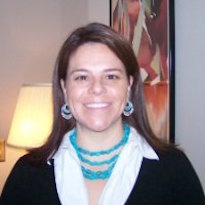
Program Director, National Science Foundation (NSF), USA.
Dr DeAro is a science, technology, engineering, and mathematics (STEM) education and diversity expert with fifteen years of policy and program experience in two federal agencies including details as Acting Deputy Division Director and to the White House Office of Science and Technology Policy (OSTP). These experiences have complemented her formal scientific training with expertise in federal management and leadership, STEM policy, broadening participation programs, and STEM education and broadening participation research. Dr DeAro has experience designing and managing federal discretionary grant programs to broaden participation of underrepresented groups (women, minorities, and people with disabilities) and to improve the quality of STEM education. She has worked with faculty and administrators from many types of institutions to improve educational programs, student support services, research activities and infrastructure, as well as the administrative and financial capacity of institutions. These institutions include: Hispanic-Serving Institutions (HSIs); Tribal Colleges and Universities (TCUs); Historically Black Colleges and Universities (HBCUs); research intensive institutions; and institutions with low per-student expenditures such as community colleges, liberal arts, and small comprehensive institutions.
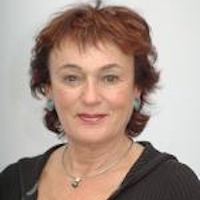 President's Advisor on Women's Affairs, Tel Aviv University, Israel.
President's Advisor on Women's Affairs, Tel Aviv University, Israel.
Prof Erhard is Tel Aviv University's advisor to the President on Gender Equity. She's working to introduce institutional changes aimed at promoting gender equity; to increase the rate of women in faculties, committees, conferences and prizes. Prof. Erhard also developed unique career workshops for female PhD candidates. Prof. Erhard has held various senior positions in the education system, the most recent of them being Head of the Research and Development Unit at the Psychological and Counseling Service, Ministry of Education and Culture. Prof Erhard led the introduction of the Creating Futures in Science programme at Tel Aviv. CFIS is an innovative career planning workshop that utilises scenario building.
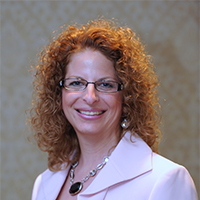
Vice President, Global Academic & Research Relations, Elsevier, USA.
Holly J. Falk-Krzesinski PhD, is the Vice President for Global Academic & Research Relations for Elsevier where she is focused on alliance formation at research institutions and federal funding agencies, especially those related to strategic planning for the research enterprise. Prior to joining Elsevier, Dr Falk-Krzesinski had been a faculty member in arts & sciences and medicine for fifteen years at Northwestern University where she led initiatives related to research development and team science. She facilitated a multitude of trans-institutional collaborative grant programs spanning art history to bioenergy, with a special interest on approaches to evaluating collaboration and interdisciplinary research, team science leadership, and research networking tools.
Read more: Dr Holly Falk-Krzesinski
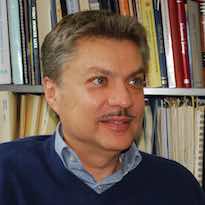 Researcher, Pharmacobiology of Cinvestav, Center for Research and Advanced Studies (CINVESTAV), Mexico.
Researcher, Pharmacobiology of Cinvestav, Center for Research and Advanced Studies (CINVESTAV), Mexico.
Dr Alonso Fernández Guasti is a biologist by the UAM-Iztapalapa (1979), he obtained the master degree in Physiology at the Institute of biomedical research of UNAM (1982) and the PhD from the Department of Physiology, biophysics and neuroscience of the CINVESTAV (1986). He did stays at the University of Gothenburg in Sweden and the Netherlands Institute for brain research in Amsterdam where he studied sexual differentiation in human brains. Among the awards he has received is that of the Mexican Academy of Sciences in 1997 and the Chair Ramon de la Fuente in 2013. His scientific activity is related to different areas like sex and gender differences in anxiety and depression and their treatment, brain and behavior sexual differentiation, study of sexual behavior in rodents, relation of psychoactive drugs with steroidal hormones.
Read more: Dr Alonso Fernández Guasti
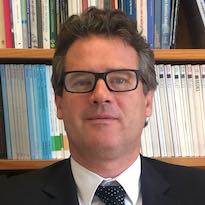 Chief of Section for Science Policy and Partnerships, Natural Sciences Sector, UNESCO.
Chief of Section for Science Policy and Partnerships, Natural Sciences Sector, UNESCO.
Ernesto Fernández Polcuch is a Science Diplomat, a specialist in Science, Technology and Innovation Policy, with a M.Sc. in Science, Technology and Society from the National University of Quilmes, Argentina. He is currently Chief of Section for Science Policy and Partnerships in the Natural Sciences Sector of UNESCO. In this position he manages global UNESCO programmes in Science, Technology and Innovation Policy, Science Communication, Gender and STEM, Science Diplomacy, and Science-Policy-Society linkages, including the UNESCO Global Observatory of STI Policy Instruments GO-SPIN, the UNESCO Science Report, the L’Oréal UNESCO For Women in Science Programme, and the STEM and Gender Advancement (SAGA).
Read more: Ernesto Fernández Polcuch (GS8)
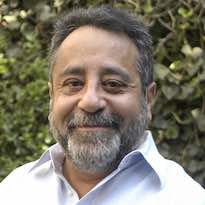 General Coordinator, Scientific and Technological Advisory Forum (FCCyT), Mexico.
General Coordinator, Scientific and Technological Advisory Forum (FCCyT), Mexico.
Jose Franco was born in Mexico City in 1949. He got his B. Sc. in Physics at the National University of Mexico (UNAM), and his Ph.D. in Physics from the University of Wisconsin. He joined the Institute of Astronomy of UNAM (IAUNAM) as a researcher in 1983, and became Full Professor in 1992. He obtained the UNAM Award for Scientific Research in 2002 and the Research Prize from the Mexican Society of Physics in 2009, and was appointed IAUNAM´s Director from December 2002 until December 2010. He is President of the Mexican Academy of Sciences (May 2012-May 2014) and General Director of the Science Outreach Center of UNAM. His research interest is focused on the physics of the interstellar medium and he has worked on a wide variety of issues, including self-regulated star formation, the evolution of HII Regions, the formation and destruction of molecular clouds, the evolution of supernova remnants, the evolution of magnetized stellar winds and the shaping of planetary nebulae, the collision of high-velocity clouds with the gaseous disk, activity in galaxies, interstellar dusty flows driven by radiation pressure, and the magnetohydrodynamics of the insterstellar medium.
Read more: Dr José Franco
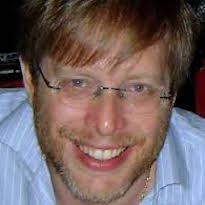 Director, Department of Economics, Universidad ORT, Uruguay.
Director, Department of Economics, Universidad ORT, Uruguay.
Nestor Gandelman holds a Ph.D. in Economics from the University of Rochester and is the Director of the Department of Economics of Universidad ORT Uruguay. He teaches courses on Principles of Economics, Labor Economics and Applied Research Methodology. Gandelman is engaged in an intense research agenda on applied microeconomic with focus on development and policy impact in Latin America. His research interests are broad including firm level research, housing economics and subjective life indicators. Gandelman has a long term concern on gender issues. His published work includes including analysis of housing markets (Gandelman 2009), judicial process (Gandelman, Gandelman and Rothchild 2010), glass ceilings in labor markets (Carillo, Gandelman and Robano 2014) and differencs in subjective well being (Arrosa and Gandelman 2016). Gandelman is a level II researcher of the Sistema Nacional de Investigadores
Read more: Dr Nestor Gandelman
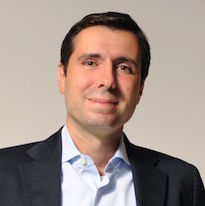
Economist Competitiveness, Technology and Innovation Division, Inter-American Development Bank (IDB).
Matteo Grazzi is an Economist in the Competitiveness and Innovation Division of the Inter-American Development Bank. Before joining the IDB, Matteo worked as a consultant economist at the UN Economic Commission for Latin America and the Caribbean (ECLAC) in Santiago, Chile and as a researcher at the Centre for Research on Latin American and Transition Economies Studies (ISLA) at Bocconi University in Milan. He holds a PhD in International Law and Economics from Bocconi University and an MA in Development Economics from the University of Sussex (Brighton, UK). His main research interests focus on economics of innovation and creativity, gender and STI, and ICT for development. At the IDB, he designs and manages programs to promote science, technology and innovation in Latin America and the Caribbean.
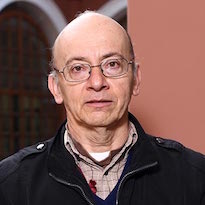 Professor Department of Economics, Universidad del Rosario, Bogotá, Colombia; Research Fellow, Regional Dialogue on Information Society (DIRSI), Latin América.
Professor Department of Economics, Universidad del Rosario, Bogotá, Colombia; Research Fellow, Regional Dialogue on Information Society (DIRSI), Latin América.
Luis H. Gutierrez is currently professor at the economics department at Universidad del Rosario in Bogotá, Colombia. He holds a PhD from the University of Florida. He is also a researcher at the Universidad del Rosario. He has been associated with DIRSI (Regional Dialogue on Information Society) from 2008 and has participated in a couple of DIRSI’s main projects. He has published in Journal of Regulatory Economics, Utilities Policy, Telecommunications Policy, Information Society, Technology in Society, Quarterly Review of Economics and Finance, Journal of Economics and Business, Applied Financial Economics Letters Industrial and Corporate Change and Emerging Markets, Finance and Trade. His field studies are in industrial organization and regulation, corporate governance and telecommunications. Current research is about innovation and ICT in Colombian manufacturing firms, broadband access and usage by Colombian households, and governance contestability in Latin American firms.
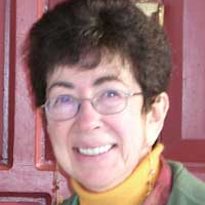 Former coordinator, African Information Society Initiative, UN Economic Commission for Africa (UNECA).
Former coordinator, African Information Society Initiative, UN Economic Commission for Africa (UNECA).
Dr Nancy Hafkin has been working to promote information and communications technology in Africa and other developing areas, with particular emphasis on gender, for four decades. She was chief of research in the program for women and development at the United Nations Economic Commission for Africa (ECA) in Addis Ababa — the first international women and development program in the world. She subsequently headed the ECA program to Promote Information Technology for Development in Africa, where she worked to establish the African Information Society Initiative that promoted the importance of information technology to African governments.
Read more: Dr Nancy Hafkin
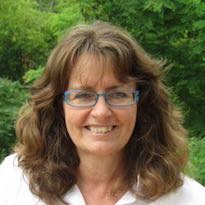
Gender and Social Inclusion Research Leader, Research program on Climate Change, Agriculture and Food Security, Consultative Group for International Agricultural Research (CIGIAR)
Before taking on her current position with CCAFS, Sophia Huyer was Executive Director of Women in Global Science and Technology – WISAT. She has been a leader in research and policy analysis on global gender equality issues relating to science, technology and sustainable development for over 20 years. She provided strategy and capacity development support to the Organization for Women in Science for the Developing World (OWSD) as their Senior Advisor from 2009-2013 and is affiliated with the Gender Advisory Board of the UN Commission on Science and Technology for Development (GAB-CSTD). She has been a consultant to FAO, UN Women and UNDP on gender equality relating to agriculture, climate change, disaster and risk reduction, energy and infrastructure, most recently as advisor to the FAO initiative on Reducing Women’s Work Burden and author of the UNDP / Government of Macedonia report Gender and Climate Change in Macedonia: Applying a Gender Lens to the Third National Communication on Climate Change.
Read more: Dr Sophia Huyer
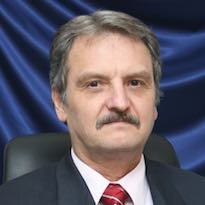 Professor, Institute of Biomedical Research, National University of Mexico (UNAM), Mexico.
Professor, Institute of Biomedical Research, National University of Mexico (UNAM), Mexico.
Juan Pedro Laclette is a Professor at the Institute of Biomedical Research of the National University of Mexico (UNAM); has produced over 150 publications including international articles, book chapters, and patents; he has also co-edited five books on biomedical topics and coordinated the edition of over 60 more books related to the evaluation of Mexico’s scientific development. Dr. Laclette was Director for two periods of the Institute for Biomedical Research-UNAM; President of the Mexican Academy of Sciences; Co-Chair for two periods of the Inter American Network of Academies of Sciences (IANAS) and Coordinator General of the Mexican Scientific and Technological Consultative Forum during four years. He also was Dean of Graduate Studies at UNAM.
 Scientific Director, Quebec Natural Sciences and Technology Granting Agency; President, Royal Society of Canada (Montréal, QC), Canada.
Scientific Director, Quebec Natural Sciences and Technology Granting Agency; President, Royal Society of Canada (Montréal, QC), Canada.
Professor Lassonde is the Scientific Director of the Quebec Natural Sciences and Technology Granting Agency, and President of the Royal Society of Canada (2015 to 2017). Professor Lassonde completed a bachelor’s degree in psychology at the Université de Montréal and a PhD at Stanford University. She went on to become a professor at the Université du Québec à Trois-Rivières (1977 to 1988), and the Université de Montréal, where she became Professor Emeritus in 2013. Professor Lassonde has been named Honorary Professor at the University of Auckland and at the Université de Paris V. Since the beginning of her career, Professor Lassonde has studied several topics, including cognitive development in infants, childhood epilepsy and the effects of sports concussions on the brain. She has published seven books, and over 300 book chapters and articles in scientific journals.
Read more: Prof Maryse Lassonde
 Principal Research Fellow, Gendered Innovation Research Center (GIRC) and Professor Emeritus, Ewha Womans University, Seoul, Korea.
Principal Research Fellow, Gendered Innovation Research Center (GIRC) and Professor Emeritus, Ewha Womans University, Seoul, Korea.
Having served as the founding president of the Center for WISET (Women in Science, Engineering and Technology) until Mach 2016, Professor Heisook Lee moved to GIRC to focus on Gendered Innovations research in STEM fields. Professor Lee was a co-organizer of the Gender Summit Asia Pacific in 2015. She received her B.S. M.Sc. and Ph.D. degrees in Mathematics from Ewha Womans University, Korea, the University of British Columbia and Queen’s University, Canada, in 1971, 1974 and 1978 respectively. She worked at Universitat Regensburg, Germany, as a postdoctoral fellow, and was later appointed Professor of Mathematics at Ewha Womans University in Seoul Korea. Professor Lee was Dean of the College of Natural Sciences, and Dean of Research affairs at Ewha between 1997 and 2001. She served as Dean of the Graduate School from 2006 to 2008. Professor Lee served as the founding Editor of Communications of the Korean Mathematical Society from 1986 to 1988 and as Chief Editor of the Journal of the Korean Mathematical Society from 1994 to 1996.
Read more: Prof Heisook Lee
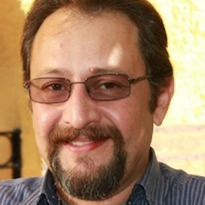 Director of sectorial coordination, CONACYT Public Research Centers, Mexico.
Director of sectorial coordination, CONACYT Public Research Centers, Mexico.
Salvador E. Lluch-Cota is Director of Sectorial Coordination (coordination of the 27 CONACYT Public Research Centers) and main researcher on Fisheries Ecology at the Northwest Biological Research Center (CIBNOR). Salvador has been leader of several research projects (both national and international), produced over 70 refereed papers, books, book chapters, and commissioned reports (FAO, WMO, UNESCO, GLOBEC), and refereed over 50 scientific papers in journals that include Science, PNAS, and Progress in Oceanography, mostly in the fields of Climate Change, Fisheries, and Marine Ecology. He has served as President of the Mexican Chapter of the American Fisheries Society and the Mexican Fisheries Society (2007-2009),
Read more: Dr Salvador E. Lluch Cota
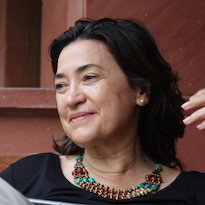 Professor, Institute of Biotechnology of the National University of Mexico (UMAM), Mexico.
Professor, Institute of Biotechnology of the National University of Mexico (UMAM), Mexico.
Susana López is Professor at the Institute of Biotechnology of the National University of Mexico (UNAM). She made her undergraduate and PhD studies in Basic Biomedical Research, at UNAM, in Mexico City. Her area of expertise is Molecular Virology and she is interested in the study of the biology of viruses that cause gastroenteritis in children, with special emphasis in rotaviruses. Dr Lopez has formed a successful group of research with Dr Carlos F. Arias, and together they have published more than 100 peer-reviewed articles. She has been the direct advisor of 30 graduate students, many of whom have now their own virology labs in Mexico and abroad. In 1993 she was awarded the prize of the Mexican Academy of Science in Natural Sciences, a national prize for young researchers. She was appointed as an International Howard Hughes Scholar from 2000 to 2010, within the Parasitic and Infectious Diseases program. In 2001, she was awarded the Carlos J. Finlay prize by UNESCO, and in 2008 obtained the TWAS prize in Biology. In 2012, Dr Lopez was awarded with the For Woman in Science prize given by L´Oreal-UNESCO, and more recently, in Nov. 2013 she shared the UNAM prize in Natural Sciences with Dr Arias. Currently, she is a permanent member of the NIH study group in Virology (2012-2016), and was appointed as Editor of the Journal of Virology, for the 2013-2018 period.
Read more: Prof Susana López
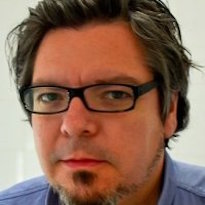 Independent S&T policy consultant.
Independent S&T policy consultant.
Vladimir López-Bassols works as an independent consultant on science, technology and innovation (STI) policy and measurement. Recent projects include work for the Inter-American Development Bank (IDB) on indicators of STI and gender, for the World Bank on metrics of innovation capabilities in developing countries, for the UNESCO Institute for Statistics (UIS) on the measurement of Scientific and Technological Activities (STA), and for the US National Science Foundation (NSF) on R&D and innovation surveys. Previously, Vladimir worked at the Organisation for Economic Co-operation & Development (OECD) for almost 20 years on numerous projects relating to the measurement of new technologies and innovation and analysis of their socio-economic impacts. Vladimir holds graduate degrees from Rice University (US) and the University of Paris (France).
 General Director, Instituto Nacional de Ecología y Cambio Climático (INECC), Mexico.
General Director, Instituto Nacional de Ecología y Cambio Climático (INECC), Mexico.
María Amparo Martínez Arroyo holds a Bachelor in Biology and a Master on Sciences from the National University Autonomous of Mexico (UNAM) and a PhD. in Ecology from University of Barcelona, Spain (Cum Laude Honors)Cum Laude. PhD. Martinez Arroyo worked as Director of the Center for Atmospheric Sciences (CAS) of the UNAM from 2009 to August 2013, and is still Senior Researcher and Atmospheric Aerosols Group Coordinator. Has been pioneer in the study of atmosphere-biosphere interactions in aquatic systems, analyzing photosynthesis processes (carbon dioxide capture and oxygen production), as well as emission and biogenic catching of other gases climatically active (dimethyl sulphide, methane) in continental, coastal and marine ecosystems. Ph.D. Amparo Martinez is an expert in environmental problems analysis, and in the relations between science and society
Read more: Dr María Amparo Martínez Arroyo
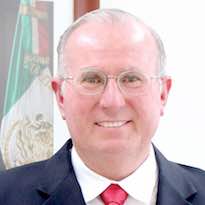 General Director, Mexican Space Agency, Mexico.
General Director, Mexican Space Agency, Mexico.
Prof Francisco Javier Mendieta-Jimenez obtained his bachelor’s degree in Mechanical and Electrical Engineering from the National University of Mexico (UNAM), and his Certificate of Higher Studies and Doctor of Engineering degree from the National Superior School of Telecommunications (ENST), France, in the field of Optical Telecommunications. At the Institute for Electrical Research (IIE), Mexico, he was involved in development projects on applications of optical fibers to electrical power systems. During a leave at the Utah State University (USU), U.S.A., he participated in a project on instrumentation for space experiments. At the Center for Scientific Research and Higher Education of Ensenada (CICESE), a Center coordinated by the Mexican Agency for Science and Technology (CONACYT), he formed the optical communications group and laboratory, where he has leaded diverse research and development projects on optical telecommunications, free space optical satellite communications and detection.
Read more: Prof Francisco Javier Mendieta-Jimenez
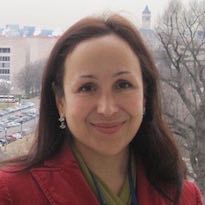 Program Executive, Earth Science Flight Missions, Science Mission Directorate (SMD), NASA, USA.
Program Executive, Earth Science Flight Missions, Science Mission Directorate (SMD), NASA, USA.
Ms Mayra Montrose is Program Executive for Earth Science Flight Missions in the Science Mission Directorate (SMD) of NASA. She currently manages three space missions that will be installed on the International Space Station to monitor solar irradiance (TSIS-1), atmospheric carbon dioxide (OCO-3), and plant health (ECOSTRESS). From 2006 to 2014, she worked at the National Science Foundation (NSF), where she served as Manager of the Presidential National Medal of Science and the NSF Alan T. Waterman Award, and served as the NSF point of contact with the White House’s Office of Science and Technology Policy for all Presidential awards managed by NSF. She was also the Executive Secretary of the Committee on Science of the President’s National Science and Technology Council (NSTC) that coordinates science policy for the U.S. Federal Government, and of the Committee on STEM Education of the NSTC.
Read more: Mayra Natalia Montrose
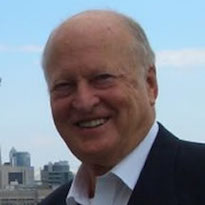 Honorary Professor, Science Policy Research Unit (SPRU) at University of Sussex, UK; member, Gender Advisory Board, UN Commission on Science and Technology for Development (UNCSTD); Steering Committee, GenderINSITE.
Honorary Professor, Science Policy Research Unit (SPRU) at University of Sussex, UK; member, Gender Advisory Board, UN Commission on Science and Technology for Development (UNCSTD); Steering Committee, GenderINSITE.
Prof Oldham is an Honorary Professor with SPRU at the University of Sussex, UK. Prof Oldham trained as a geophysicist and spent several years in the exploration research laboratories of Standard Oil Company of California. He left the oil company to accept a Fellowship which enabled him to study the Chinese language and to initiate a review of science and technology policy in several Asian countries. After a year with the Scientific Directorate of OECD he helped start the Science Policy Research Unit at the University of Sussex and was its Director from 1980 to 1992. He was also a member of the team which designed and drafted the Act of the Canadian Parliament which established the International Development Research Centre. He directed the Centre's Science and Technology Policy Programme for ten years and served as Science Adviser to the President of IDRC from 1992 to 1996.
Read more: Prof Geoffrey Oldham
 Consultant and researcher, UNU-MERIT.
Consultant and researcher, UNU-MERIT.
Jocelyn Olivari is a consultant in economics at the Inter-American Development Bank in Washington DC, and a researcher at UNU-MERIT, Maastricht University, The Netherlands. Her research interests include the economics of innovation, entrepreneurship and public policies related to these topics. Previously, in Chile, she worked in the Department of Economics at the University of Chile as an associate researcher and as the head of innovation research of the INTELIS center for innovation and entrepreneurship studies. She also worked in the Innovation Division of the Ministry of Economy and in the Executive Secretary of the National Innovation Council for Competitiveness. Jocelyn holds a PhD in Economics and Policy Studies of Technical Change from UNU-MERIT, Maastricht, The Netherlands, and a MSc and a BA in Economics from University of Chile.
 Director of the Division of Economics and Professor of Economics, Center for Research and Teaching in Economics (CIDE), Mexico.
Director of the Division of Economics and Professor of Economics, Center for Research and Teaching in Economics (CIDE), Mexico.
Susan W. Parker is Director of the Division of Economics and Professor of Economics at the Center for Research and Teaching in Economics (CIDE) in Mexico City. She obtained her doctorate in economics from Yale University. Her research focuses on education, labor and health in developing countries. She is an expert on the design, implementation and evaluation of programs in Mexico, both in randomized controlled trials and in their non-experimental follow-up. She has also studied implementation and targeting issues in the evaluation of social programs. She has published widely on these topics in international journals including the Journal of Political Economy, Journal of Human Resources, International Economic Review, the Journal of the European Economics Association, Economic Development and Cultural Change, Scandinavian Journal of Economics, Journal of Population Economics and Demography
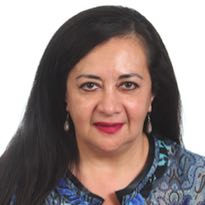 Director, Women and Science network of Mexico; Vicepresident, OWSD Mexican Chapter; Researcher and Professor, School of Medicine, National Autonomous University of Mexico (UNAM), Mexico.
Director, Women and Science network of Mexico; Vicepresident, OWSD Mexican Chapter; Researcher and Professor, School of Medicine, National Autonomous University of Mexico (UNAM), Mexico.
Dr Elia Martha Pérez Armendariz is an MD, PhD and professor at the School of Medicine of the National Autonomous University of Mexico (UNAM), Member of the Mexican Academy of Sciences and of the National System of Researchers of Mexico. MD from the School of Medicine at UNAM, M.Sc. in neuroscience and PhD in physiology and biophysics from the CINVESTAV, IPN in Mexico City. She worked at the NIDDK, NIH, and at the Albert Einstein College of Medicine, Bronx, NY, USA as postdoctoral researcher as well as professor at the last institution.
Read more: Dr Elia Martha Pérez Armendariz
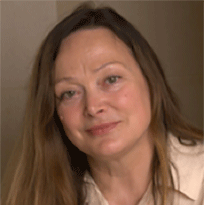
Director, Portia Ltd; Gender Summit founder, UK.
Elizabeth Pollitzer PhD is founder and Director of Portia, an organization devoted to improving gender equality in STEM and promoting the inclusion of the gender dimension in STEM. She has 20 years’ experience teaching and researching in the Departments of Computing and Management at Imperial College, University of London. Her original training was in Biophysics. She now applies this scientific background to her work as director of Portia. Portia was the coordinator of the genSET project, the Gender Summits were established as part of the genSET project. Portia's strategy is to help women and men have the same opportunities for engagement and advancement in science, across all science disciplines by: 1) promoting cultures that are collaborative and sensitive to gender issues; 2) ensuring that quality of research and innovation is enhanced by addressing gender issues, where relevant; and 3) showing how new ideas and markets for science knowledge can be created by including women as co-owners and co-solvers of problems facing society.
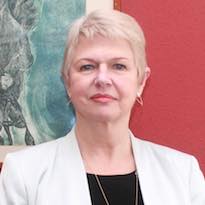 Mexican Agency for International Cooperation for Development (AMEXCID).
Mexican Agency for International Cooperation for Development (AMEXCID).
Maria Esther Pozo has devoted most of her career to communication and education. She worked as a producer and editor of cultural and political programs in Televisa, and had various roles in the public sector, such as Broadcasting Director of the National Institute of Fine Arts (INBA); Director of Social Communication of the National Savings and Financial Services Bank (Bansefi), and Director of Information and Communication at the Federal Mortgage Society (SHF). In these two development banks, she was also in charge of transparency, as well as of design and implementation of financial inclusion and education programs at the national level. Ms. Pozo has a Bachelor and a Master degrees in Marketing from ITESM, with a specialization in behavioral economics, and carried out studies in International Relations and Cognitive Behavioral Theory at UNAM. She has been a university professor and co-authored two books: one on business associations and another on Financial Education in Mexico. Finally, for several years she wrote a weekly column on gender issues in a magazine with national scope.
Dr Sandra Ramírez is a researcher professor at the Chemistry Research Center of the Autonomous University of the State of Morelos. She got a PhD in Chemistry at the School of Chemistry of the Universidad Nacional Autónoma de México (UNAM) and a PhD in Sciences at the Université de Paris XII Val de Marne. She obtained the Weizmann Prize in 2001. Her research is devoted to the characterization of planetary atmospheres by diverse instrumental techniques, and to the study of the adaptation strategies displayed by halophile bacteria in scenarios of astrobiological importance.She is a member of the National Research System, and of other different national and international academic societies. She teaches courses in Chemistry and Astrobiology at both undergraduate and graduate levels, and has supervised the thesis projects of bachelor and master students, as well as post-doctoral researchers.
Read more: Dr Sandra I. Ramírez Jiménez
 Research Professor, Faculty of Nursing and Nutrition, Universidad Autónoma de San Luis Potosí Inicio (UASLP), Mexico.
Research Professor, Faculty of Nursing and Nutrition, Universidad Autónoma de San Luis Potosí Inicio (UASLP), Mexico.
Doctor of Social Sciences from the College of San Luis A.C., Master of Science in Nursing from the University of Guanajuato and Bachelor of Nursing from the UASLP. Research Professor at the Faculty of Nursing and Nutrition UASLP. Coordinator of the Master of Public Health and professor degree in Maternal and Child Health issues. Visiting Professor of the Doctoral Program in Nursing at the University of Guanajuato. Candidate researcher at the National Research System of CONACYT. Member of the Academic group: Population Health: policies and practices in vulnerable groups, also a member of the Research Network "Gender, inequality and migration." Research Line: Gender, sexual and reproductive health, and violence against women. Activist for sexual and reproductive rights, and the rights of girls and women to a life without of violence in the non-governmental organization "Inclusion, gender and citizenship" A.C. Independent consultant on sexual health, evaluation of health policies, and mainstreaming of the gender perspective. Publications in peer-reviewed journals and congress memories either national and international.
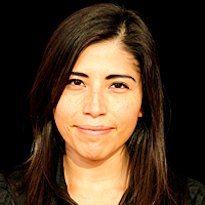 Research Fellow, UNU-MERIT, France.
Research Fellow, UNU-MERIT, France.
Lorena Rivera León is a research fellow at UNU-MERIT since 2011. She received her MA jointly from the Department of Economics, University of British Columbia, Canada and the Université Pierre-Mendès-France in Grenoble. Her research interests concern the study of the economics of science in middle-income-countries (MICs). She has worked with Professor Jacques Mairesse in the development of an econometric framework to understand the determinants of gender productivity gaps in MICs. In the past, she worked as a Research Assistant in the Department of Media and Communications, London School of Economics and Political Science; the United Nations Industrial Development Organisation in Vienna; and the European Commission (Information Society and Media Directorate General). She has several years of experience working as a researcher and consultant in the field of research and innovation policy.
Read more: Lorena Rivera León
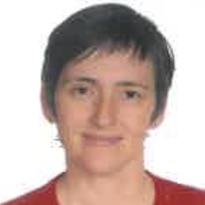 Delegation of the European Union to Mexico.
Delegation of the European Union to Mexico.
Imma Roca i Cortés was born in 1967 in Balaguer, Spain. She holds a degree in Political Sciences in the specialties of International Relations and Labor Studies and a postgraduate in European Studies in the College of Europe in Bruges (Belgium). Imma Roca i Cortés has worked in the European Commission for more than a 15 years. In the framework of her work for this institution, she has lived in Jordan from 1997 to 1999 where she worked in the area of economic and technical cooperation and she has formed part of the European team responsible for the Global Agreement between the European Union and Mexico. From 2003 to September 2007 she lived in Managua, where she was the Head of the Political, Economic and Press Section of the Delegation of the European Commission for Central America and Panama.
Read more: Imma Roca i Cortés
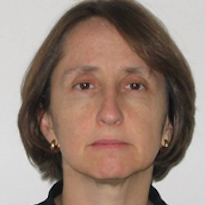 Manager, Institutions for Development, Inter-American Development Bank.
Manager, Institutions for Development, Inter-American Development Bank.
Ana María Rodríguez-Ortiz has been the Manager of the Institutions for Development Department (IFD) since February 2011. She previously served as Manager of the Andean Country Group. Since joining the Bank in 1991, Mrs. Rodríguez-Ortiz has occupied several positions, including Senior Advisor to the Office of the Presidency from June 2008 to December 2010. She was the IDB’s Country Representative in Peru from August 2007 through June 2008. She has also been Chief Advisor to the Executive Vice Presidency; Chief of the Finance and Basic Infrastructure Division of the Regional Operations Department 3; Chief of the Country Division for Colombia, Ecuador, Peru and Venezuela; and Technical Advisor to the Executive Vice Presidency.
Read more: Ana María Rodríguez-Ortiz
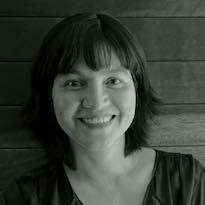 Professor, Center for Demographic, Urban and Environmental Studies, El Colegio de Mexico (COLMEX), Mexico.
Professor, Center for Demographic, Urban and Environmental Studies, El Colegio de Mexico (COLMEX), Mexico.
Landy Sanchez Peña is a Professor at the Center for Demographic, Urban and Environmental Studies at El Colegio de Mexico. She holds PhD in Sociology from the University of Wisconsin-Madison, with a minor in geography. Her research focuses on the intersection of inequality, demographic change, and the environment. Her recent publications evolve around energy consumption, mitigation of greenhouse emissions in urban areas, sustainable development, and the relationship between family transformations and gender inequalities. Landy Sánchez was selected as a Sustainable Urbanization Fellow by International Social Science Council in 2013. She is also a member of Steering Committee of the Population and Environment Research Network and of the International Panel on Spatial Demography. She is currently working on a project on Climate Change and Poverty in Mexico.
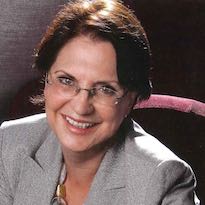 Deputy Director of Postgraduate Studies and Scholarships, National Council of Science and Technology (CONACYT), Mexico.
Deputy Director of Postgraduate Studies and Scholarships, National Council of Science and Technology (CONACYT), Mexico.
María Dolores Sánchez Soler is a Sociologist with a Msc in Applied Social Sciences from the Autonomous University of Baja California. Prior to Her current position at CONACYT, she has been Chief advisor to the Director General of the Mexican Petroleum Institute and to the Director General of the National Polytechnic Institute. Has served as Director of Research in the National Center for Higher Education Assessment, Academic Secretary in the National Association of Universities and Higher Education Institutions, Director of the School of Humanities and General Director of Extension programs at the Autonomous University of Baja California. She received de Merit Award from UABC (1996) and the 2005 ANUIES National Award for Academic Contribution to Higher Education. Is author of a book and co-author of 23 books on Higher Education.
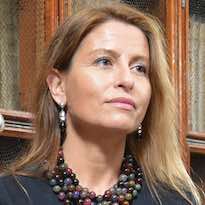 Director and Representative of UNESCO in Mexico.
Director and Representative of UNESCO in Mexico.
Nuria Sanz has been Head and Representative of the UNESCO Office in Mexico since November 2013. She has a PhD in history and archaeology from Universidad Complutense de Madrid and La Sapienza in Rome. For over 20 years, Ms Sanz has worked in international organizations such as the European Commission, the Council of Europe and UNESCO, and a large focus of her work has been on the field of the protection of cultural and natural heritage. From 2002 to 2013, she was Chief of the Latin American and Caribbean Unit of the UNESCO World Heritage Centre in Paris, France. She has edited more than 20 World Heritage publications and has carried out extensive literary work in cultural cooperation, and on culture and development issues.
Read more: Nuria Sanz
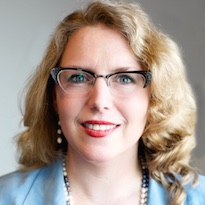
Ylann Schemm (@ylannschemm) heads Elsevier's ccorporate responsibility program, which focuses on three key sustainability areas: diversity in science, global health and developing research ecosystems in developing countries. She serves as the Program Director of the Elsevier Foundation and advises Elsevier on access to research in developing countries and embedding gender policies within its core businesses and processes. Ylann is the chair of the Communications taskforce for Research4Life, a UN-pan publisher access program working to bridge the digital research divide.
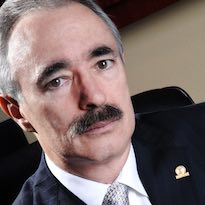 Director, National Institute of Genomic Medicine of the Mexican Health Ministry (INMEGEN), Mexico.
Director, National Institute of Genomic Medicine of the Mexican Health Ministry (INMEGEN), Mexico.
Xavier Soberón is the Director of the National Institute of Genomic Medicine. For over 35 years, he has been research scientist at the Biotechnology Institute of the National University (UNAM), of which he also served as Director. He has a PhD in Biomedical Research from the UNAM and a Bachelor in Chemistry. He has been a research fellow at City of Hope Medical Center, in Duarte California, he was also a visiting professor in David Agard's Lab at University of California, San Francisco. Since 1981, he is actively involved in the development and consolidation of the Genetic Engineering, Biotechnology and Genomics areas at UNAM. He has focused his research on the chemical synthesis of DNA and its applications in the study of proteins, the development of biopharmaceuticals and vaccines, and biocatalysis.
Read more: Dr Xavier Soberón
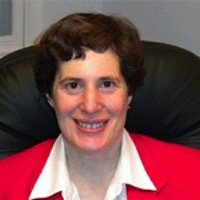
Independent Consultant, USA.
Janet Stotsky is an independent consultant on fiscal policies and gender. She was an economist with the International Monetary Fund for 21 years, where she held managerial positions in the Fiscal Affairs and African Departments, and in the Office of Budget and Planning (in the Office of the Managing Director). She led teams to negotiate IMF programs, prepare IMF surveillance reports on macroeconomic developments, and provide technical assistance on fiscal policies and administration.
Read more: Dr Janet Stotsky
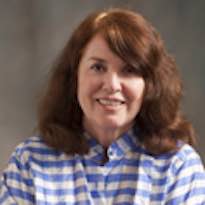 Professor, International Education Policy, College of Education, Univeristy of Maryland, USA.
Professor, International Education Policy, College of Education, Univeristy of Maryland, USA.
Dr Stromquist holds a Ph.D. degree in international development education from Stanford University and a master's in political science from the Monterey Institute of International Studies. She specializes in issues related to social change and gender, which she examines from the perspective of critical sociology. Her research interests focus on the dynamics of educational policies and practices, gender relations, and equity, particularly in Latin America. She is author of numerous articles and several books. Among the books as sole author, most recent are Feminist Organizations and Social Transformation in Latin America (2006); Education in a Globalized World: The Connectivity of Economic Power, Technology, and Knowledge (2002); and Literacy for Citizenship in Brazil: Gender and Grassroots Dynamics in Brazil (1997).
Read more: Prof Nelly Stromquist
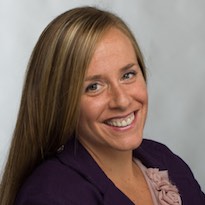 Director of Research and Analysis for the Association for Women in Science (AWIS), USA.
Director of Research and Analysis for the Association for Women in Science (AWIS), USA.
Heather Metcalf, Ph.D. is Director of Research and Analysis for the Association for Women in Science (AWIS) where she leads empirical work on gender and the science, technology, engineering, and mathematics (STEM) workforce. Dr Metcalf’s research contributes to the AWIS vision of positive system transformation in STEM. She has undergraduate degrees in applied mathematics and computer science (Clarion University of Pennsylvania, 2003) and holds master’s degrees in computer science (The University of Illinois at Urbana-Champaign, 2005) and gender studies (University of Arizona, 2007). Dr Metcalf earned her doctorate from the University of Arizona’s Center for the Study of Higher Education (2011), where she studied higher education science and technology policy. She utilizes her unique interdisciplinary background to conduct applied research on diversity and equity issues in STEM fields. Dr Metcalf’s postdoctoral research was funded by a National Science Foundation ADVANCE grant and focused on STEM faculty equity.
Read more: Dr Heather Metcalf
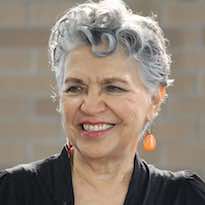 President, International Astronomical Union; Professor, Instituto de Astronomia, Universidad Nacional Autonoma de Mexico (UNAM), Mexico.
President, International Astronomical Union; Professor, Instituto de Astronomia, Universidad Nacional Autonoma de Mexico (UNAM), Mexico.
Silvia Torres-Peimbert is the President of the International Astronomical Union. She is a Professor at the Instituto de Astronomia of the Universidad Nacional Autonoma de Mexico (UNAM). She studied for the B.Sc. at UNAM and for the Ph. D. at the University of California Berkeley in 1969. She has been on the faculty of UNAM since 1969. Her field of interest has been the determination of the chemical composition of HII regions and planetary nebulae in our Galaxy and other galaxies; and in general the study of chemical evolution of galaxies and the Universe as a whole. Among her many interests throughout her career it is possible to include the development of the Ph. D. Program in Astronomy at UNAM and her role editor of Revista Mexicana de Astronomia y Astrofisica for many years; at present she is the editor of Revista Mexicana de Astronomia y Astrofisica Serie de Conferencias. She is a member of the Academia Mexicana de Ciencias; the Sociedad Mexicana de Física; the American Astronomical Society; the Astronomical Society of the Pacific; the International Astronomical Union; and The World Academy of Sciences for the advancement of science in developing countries (TWAS). Among the honours received the following can be listed: Academic Medal of the Sociedad Mexicana de Fisica; Premio de Ciencias Físicas of Universidad Nacional; Premio Nacional de Ciencias; Premio Heberto Castillo; TWAS Medal; Ph. D. Honoris Causa degree of Instituto Nacional de Astrofisica, Optica y Electronica; Hans A. Bethe Prize of the American Physical S
 Associate Vice Provost for Graduate Student Professional Development & Postdoctoral Affairs, University of Maryland, Baltimore County, USA
Associate Vice Provost for Graduate Student Professional Development & Postdoctoral Affairs, University of Maryland, Baltimore County, USA
Renetta Garrison Tull is Associate Vice Provost for Graduate Student Professional Development & Postdoctoral Affairs at the University of Maryland, Baltimore County (UMBC: An Honors University in Maryland), where she is the Co-PI and Founding Director for the National Science Foundation’s PROMISE: Maryland’s Alliance for Graduate Education and the Professoriate (AGEP) for the 12 institutions in the University System of Maryland (USM), and Co-PI/Co-Director for the Louis Stokes Alliance for Minority Participation (LSAMP) program for undergraduates in the USM, and Co-PI for the LSAMP Bridge to the Doctorate program at UMBC.
Read more: Dr Renetta Garrison Tull
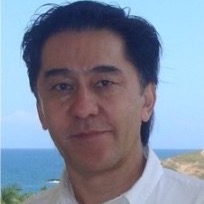 Presidente, Mexican Academy of Sciences (UNAM), Mexico.
Presidente, Mexican Academy of Sciences (UNAM), Mexico.
Dr Jaime Urrutia-Fucugauchi is a professor at the National University of Mexico (UNAM) Geophysics Institute and the Postgraduate Programs in Earth and Marine Sciences and Engineering. He has a Doctoral Degree from the School of Physics, University of Newcastle upon Tyne, England (1980) and a Master in Science (1976) and a Bachelor’s Degree in Geophysics (1975) from UNAM. He was a visiting researcher at the University of Michigan, USA in1982-1983. Dr Urrutia-Fucugauchi’s interests center on the System Earth and planetary sciences, working on paleomagnetism, tectonics, geophysical exploration, paleoclimatology, impact craters and meteorites. He has conducted projects on paleomagnetism, tectonics, geophysical exploration, Chicxulub impact crater, extinction of organisms, Allende meteorite and the origin and evolution of the solar system and contributed to the tectonic evolution and paleogeography of Mexico, formation of the Pangea supercontinent, continental break-up and tectonic rotations, He has undertaken studies in geomagnetism, rock magnetism, mineral exploration.
Read more: Dr Jaime Urrutia-Fucugauchi
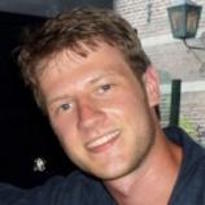 Project Manager, Goodman Research Group, Inc., USA.
Project Manager, Goodman Research Group, Inc., USA.
Victor van den Bergh holds a Bachelor's Degree in Psychology from Washington University in St. Louis and a Master's Degree in Education Policy and Management from the Harvard Graduate School of Education. He is a project manager at Goodman Research Group, Inc. where together with PI Dr. Irene F. Goodman he coordinates numerous program evaluations and research studies, including the National Science Foundation-funded Massachusetts Linking Experiences and Pathways Follow-on Study (M-LEAP2), which is one of the first large-scale U.S. studies to employ a mixed-methods longitudinal design to prospectively investigate childhood factors that underlie the gender gap in STEM career attainment. Victor has also done research on educational technology, STEM education, and child-robot interaction (CRI).
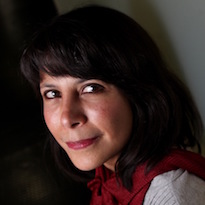 Lecturer, School of Sciences, Universidad Nacional Autónoma de México (UMAM), Mexico.
Lecturer, School of Sciences, Universidad Nacional Autónoma de México (UMAM), Mexico.
Studied at the Institute of Biomedical Research-UNAM where she earned her PhD degree on biomedicine. She also has a master's degree in molecular biology of infectious diseases at the School of Tropical Medicine, London, England and postgraduate studies in Science Communication from the Open University of Great Britain. From 2004 to 2006 she held a postdoctoral fellowship at the General Direction of Science Communication-UNAM. Since 1998, she has been lecturer at the School of Sciences at UNAM and has also taught Science Journalism at the School of Journalism Carlos Septien. She was responsible for the Unit of Information and Communication in Medicine at the School of Medicine, UNAM from 2008-2009; coordinator for Health Topics at the General Direction of Science Communication-UNAM from 2006-2008 and Medical Science Researcher at the General Hospital Manuel Gea González from 2003 to 2004.
Read more: Dr Laura Vargas Parada
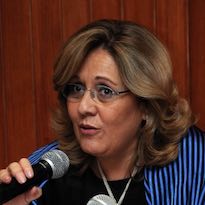 Director of the Regional Center for Multidisciplinary Research (CRIM) of National Autonomous University of Mexico, Mexico.
Director of the Regional Center for Multidisciplinary Research (CRIM) of National Autonomous University of Mexico, Mexico.
Margarita Velázquez studied social psychology at the National Metropolitan University (UAM-X) and holds a PhD in Social Sciences from the Institute of Latin American Studies at the University of London. She is professor and researcher at the National University in Mexico and at present Director of Regional Center for Multidisciplinary Research (CRIM) of the National University of Mexico. She has held government positions on gender and social development at the National Institute for Women and has been director of the national supervisory body on human rights for women and men of the National Commission on Human Rights. She has also been a consultant for various governmental and non-governmental agencies.
Read more: Prof Margarita Velázquez
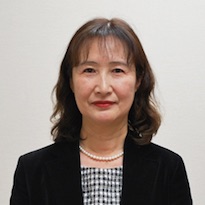
Deputy Executive Directorior, Japan Science and Technology Agency (JST); Director, Office for Diversity and Inclusion, JST, Japan.
Miyoko O. Watanabe is Senior Director at Japan Science and Technology Agency (JST). She is also the agency’s Director of the Office for Diversity and Inclusion. Dr Watanabe is a member of the Science Council of Japan and chair of the council’s Committee on Comprehensive Synthetic Engineering in Science. She is also a member of the Science and Technology Council at Ministry of Education, Culture, Sports, Science and Technology in Japan, as well as a Member of Specialist Committee on Formulating the Fourth Basic Plan for Gender Equality in the Council for Gender Equality of the Japanese Cabinet Office. She worked in various roles for Toshiba since 1979.
Read more: Dr Miyoko O. Watanabe
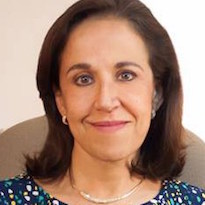 Full Researcher at the Institute for Social Research, National Autonomous University of Mexico (UNAM), Mexico.
Full Researcher at the Institute for Social Research, National Autonomous University of Mexico (UNAM), Mexico.
A Ph.D. graduate from the University of Pennsylvania, she is currently a Full Researcher at UNAM’s Institute for Social Research. She has held different high-ranking positions at UNAM as well as in the Federal Government. During 2012-2015, she was appointed Director of UNAM’s Open and Distance Education, while during 2012-2014 she was elected President of the Common Space for Distance Higher Education (ECOESAD, in Spanish) and VicePresident of the Mexican Mathematical Society. Her teaching endeavors includeUndergraduate as well asMasters’ and Doctoral programs, where she conducts courses and seminars, and advices an important number of graduate thesis. She is very active in the Graduate schools of Engineering (field of Systems and Planning, and Operations Research) and of Management Sciences.
Read more: Dr Judith Zubieta
 Director General, National Council of Science and Technology (CONACYT), Mexico.
Director General, National Council of Science and Technology (CONACYT), Mexico.

 Executive Vice-President, Inter-American Development Bank (
Executive Vice-President, Inter-American Development Bank ( Head, Office of International Science and Engineering (OISE), National Science Foundation (
Head, Office of International Science and Engineering (OISE), National Science Foundation ( Chief Scientist, The Fonds de Recherche du Québec (FRQ), Canada.
Chief Scientist, The Fonds de Recherche du Québec (FRQ), Canada.
 Director, Centre for Economic Research (
Director, Centre for Economic Research (
 Global Senior Gender Adviser, International Union for Conservation of Nature (
Global Senior Gender Adviser, International Union for Conservation of Nature ( Director of Science Planning, National Council of Science and Technology (
Director of Science Planning, National Council of Science and Technology ( Research Professor, Universidad de Quintana Roo (México); Consultant for Gender and REDD+, International Union for Conservation of Nature.
Research Professor, Universidad de Quintana Roo (México); Consultant for Gender and REDD+, International Union for Conservation of Nature. Director, Instituto de Física,
Director, Instituto de Física,  Division Chief, Competitiveness and Innovation Division, Inter-American Development Bank (
Division Chief, Competitiveness and Innovation Division, Inter-American Development Bank (

 Director of International Cooperation, National Council of Science and Technology (
Director of International Cooperation, National Council of Science and Technology ( Director for Science Policy and Sustainable Development,
Director for Science Policy and Sustainable Development,  Assistant Research Professor of Environmental Policy, Udall Center for Studies in Public Policy and School of Geography and Development,
Assistant Research Professor of Environmental Policy, Udall Center for Studies in Public Policy and School of Geography and Development, 
 Founder and Executive Director, Feminist Approach to Technology (
Founder and Executive Director, Feminist Approach to Technology ( Deputy Director for Planning and Evaluation, National Council of Science and Technology (
Deputy Director for Planning and Evaluation, National Council of Science and Technology ( Training coordinator,
Training coordinator, 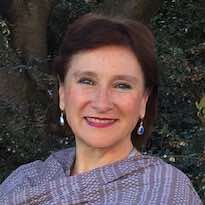 Director, Health Initiative of the Americas,
Director, Health Initiative of the Americas,  Gender and Sustainable Development Special Adviser, Global Gender Office, International Union for Conservation of Nature (
Gender and Sustainable Development Special Adviser, Global Gender Office, International Union for Conservation of Nature (
 Associate Professor of Economics,
Associate Professor of Economics,  Director of Technology Commercialisation, National Council of Science and Technology (
Director of Technology Commercialisation, National Council of Science and Technology (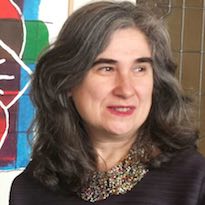 Chair, GenderSTE; Professor,
Chair, GenderSTE; Professor, 
 President's Advisor on Women's Affairs,
President's Advisor on Women's Affairs, 
 Researcher, Pharmacobiology of Cinvestav, Center for Research and Advanced Studies (CINVESTAV), Mexico.
Researcher, Pharmacobiology of Cinvestav, Center for Research and Advanced Studies (CINVESTAV), Mexico. Chief of Section for Science Policy and Partnerships, Natural Sciences Sector,
Chief of Section for Science Policy and Partnerships, Natural Sciences Sector,  General Coordinator, Scientific and Technological Advisory Forum (FCCyT), Mexico.
General Coordinator, Scientific and Technological Advisory Forum (FCCyT), Mexico. Director, Department of Economics,
Director, Department of Economics, 
 Professor Department of Economics,
Professor Department of Economics,  Former coordinator, African Information Society Initiative, UN Economic Commission for Africa (
Former coordinator, African Information Society Initiative, UN Economic Commission for Africa (
 Professor, Institute of Biomedical Research, National University of Mexico (UNAM), Mexico.
Professor, Institute of Biomedical Research, National University of Mexico (UNAM), Mexico. Scientific Director, Quebec Natural Sciences and Technology Granting Agency; President, Royal Society of Canada (Montréal, QC), Canada.
Scientific Director, Quebec Natural Sciences and Technology Granting Agency; President, Royal Society of Canada (Montréal, QC), Canada. Principal Research Fellow, Gendered Innovation Research Center (GIRC) and Professor Emeritus, Ewha Womans University, Seoul, Korea.
Principal Research Fellow, Gendered Innovation Research Center (GIRC) and Professor Emeritus, Ewha Womans University, Seoul, Korea. Director of sectorial coordination,
Director of sectorial coordination,  Professor, Institute of Biotechnology of the National University of Mexico (
Professor, Institute of Biotechnology of the National University of Mexico ( Independent S&T policy consultant.
Independent S&T policy consultant. General Director, Instituto Nacional de Ecología y Cambio Climático (INECC), Mexico.
General Director, Instituto Nacional de Ecología y Cambio Climático (INECC), Mexico. General Director, Mexican Space Agency, Mexico.
General Director, Mexican Space Agency, Mexico. Program Executive, Earth Science Flight Missions, Science Mission Directorate (SMD), NASA, USA.
Program Executive, Earth Science Flight Missions, Science Mission Directorate (SMD), NASA, USA.  Honorary Professor, Science Policy Research Unit (SPRU) at University of Sussex, UK; member, Gender Advisory Board, UN Commission on Science and Technology for Development (UNCSTD); Steering Committee, GenderINSITE.
Honorary Professor, Science Policy Research Unit (SPRU) at University of Sussex, UK; member, Gender Advisory Board, UN Commission on Science and Technology for Development (UNCSTD); Steering Committee, GenderINSITE. Consultant and researcher, UNU-MERIT.
Consultant and researcher, UNU-MERIT. Director of the Division of Economics and Professor of Economics, Center for Research and Teaching in Economics (CIDE), Mexico.
Director of the Division of Economics and Professor of Economics, Center for Research and Teaching in Economics (CIDE), Mexico. Director, Women and Science network of Mexico; Vicepresident,
Director, Women and Science network of Mexico; Vicepresident, 
 Mexican Agency for International Cooperation for Development (AMEXCID).
Mexican Agency for International Cooperation for Development (AMEXCID).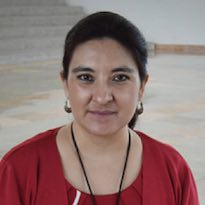 Researcher,
Researcher,  Research Professor, Faculty of Nursing and Nutrition, Universidad Autónoma de San Luis Potosí Inicio (
Research Professor, Faculty of Nursing and Nutrition, Universidad Autónoma de San Luis Potosí Inicio ( Research Fellow, UNU-MERIT, France.
Research Fellow, UNU-MERIT, France. Delegation of the European Union to Mexico.
Delegation of the European Union to Mexico. Manager, Institutions for Development, Inter-American Development Bank.
Manager, Institutions for Development, Inter-American Development Bank. Professor, Center for Demographic, Urban and Environmental Studies, El Colegio de Mexico (COLMEX), Mexico.
Professor, Center for Demographic, Urban and Environmental Studies, El Colegio de Mexico (COLMEX), Mexico. Deputy Director of Postgraduate Studies and Scholarships, National Council of Science and Technology (
Deputy Director of Postgraduate Studies and Scholarships, National Council of Science and Technology ( Director and Representative of UNESCO in Mexico.
Director and Representative of UNESCO in Mexico.
 Director, National Institute of Genomic Medicine of the Mexican Health Ministry (INMEGEN), Mexico.
Director, National Institute of Genomic Medicine of the Mexican Health Ministry (INMEGEN), Mexico.
 Professor, International Education Policy, College of Education, Univeristy of Maryland, USA.
Professor, International Education Policy, College of Education, Univeristy of Maryland, USA. Director of Research and Analysis for the Association for Women in Science (
Director of Research and Analysis for the Association for Women in Science ( President, International Astronomical Union; Professor, Instituto de Astronomia, Universidad Nacional Autonoma de Mexico (UNAM), Mexico.
President, International Astronomical Union; Professor, Instituto de Astronomia, Universidad Nacional Autonoma de Mexico (UNAM), Mexico.  Associate Vice Provost for Graduate Student Professional Development & Postdoctoral Affairs, University of Maryland, Baltimore County, USA
Associate Vice Provost for Graduate Student Professional Development & Postdoctoral Affairs, University of Maryland, Baltimore County, USA Presidente, Mexican Academy of Sciences (
Presidente, Mexican Academy of Sciences ( Project Manager, Goodman Research Group, Inc., USA.
Project Manager, Goodman Research Group, Inc., USA. Lecturer, School of Sciences, Universidad Nacional Autónoma de México (
Lecturer, School of Sciences, Universidad Nacional Autónoma de México ( Director of the Regional Center for Multidisciplinary Research (CRIM) of National Autonomous University of Mexico, Mexico.
Director of the Regional Center for Multidisciplinary Research (CRIM) of National Autonomous University of Mexico, Mexico.
 Full Researcher at the Institute for Social Research, National Autonomous University of Mexico (UNAM), Mexico.
Full Researcher at the Institute for Social Research, National Autonomous University of Mexico (UNAM), Mexico.